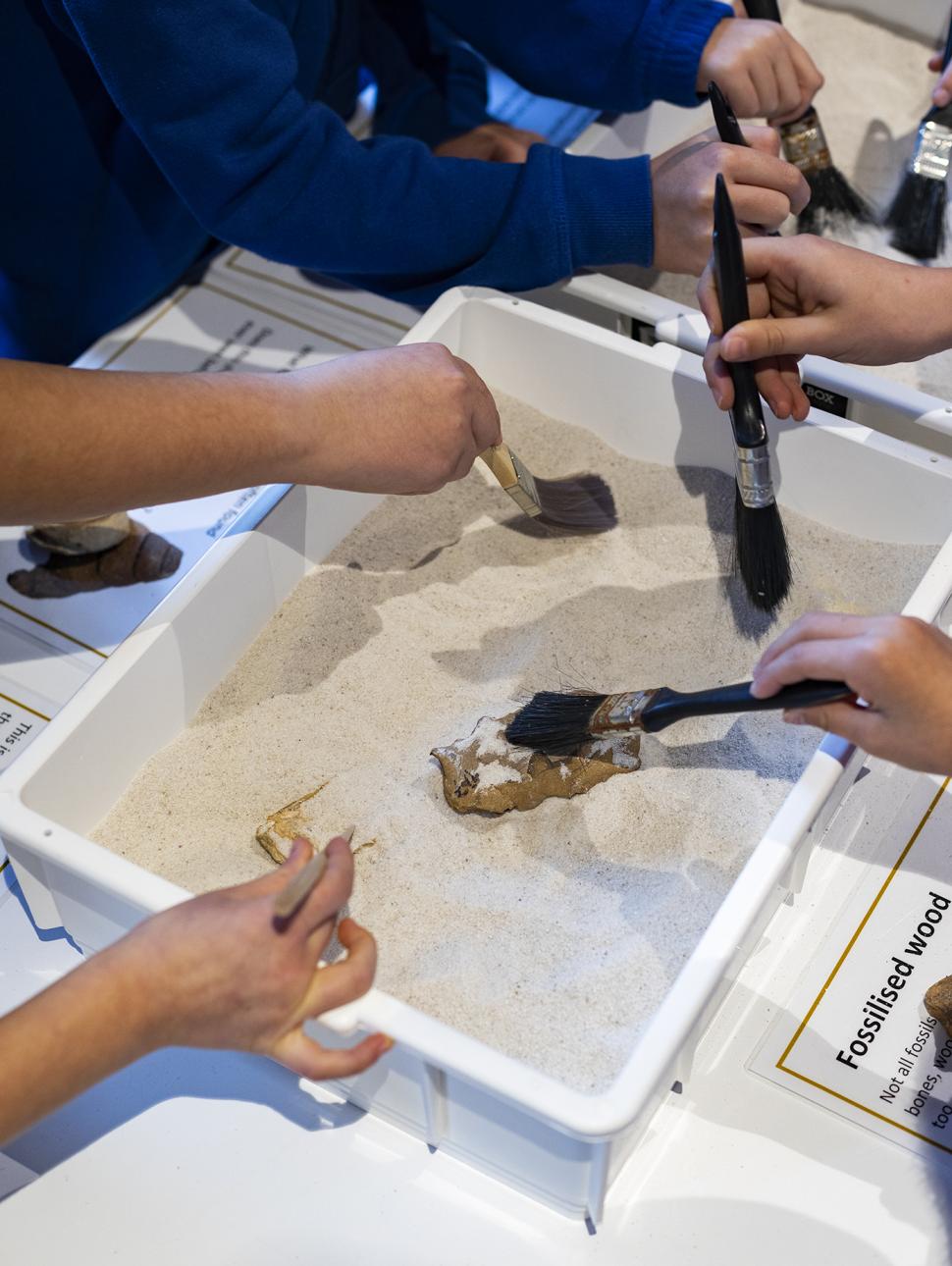
Dinosaurs Don’t Roar
Dates
Weekdays during school term | 10am and 12.30pm
$280 per group (up to 32 students)
What noise did a dinosaur make? Fossil evidence and palaeontologists tell us they probably didn't roar!
This program links to content found in Wild Life Gallery, which can be explored as part of a self-guided visit.
Student experience
Students will:
- Learn about palaeontologists and what they do
- Discover how sedimentation has created fossils remnants of dinosaurs
- Handle real and replica fossils from the Museum collection
- Determine what fossils can teach us about the prehistoric world
- Consider what noise dinosaurs might have made!
Year 3 program only:
- Upon completion of program, be escorted to the Wild Life Gallery and receive a measurement activity to complete in a self guided capacity in-gallery. This activity will focus on measuring and calculating dinosaur size relative to their footprints.
Program feedback
"Engaging and at the student level. Introducing them to fossils and their interesting history."
Curriculum links
This program links to the following strands of the Western Australian Curriculum:
Pre-primary
- Nature and development of science: Science involves observing, asking questions about, and describing changes in, objects and events (ACSHE013)
- Questioning and predicting: Pose and respond to questions about familiar objects and events (ACSIS014)
- Planning and conducting: Participate in guided investigations and make observations using the senses (ACSIS011)
Year 1
- Nature and development of science: Science involves observing, asking questions about, and describing changes in, objects and events (ACSHE021)
- Questioning and predicting: Pose and respond to questions, and make predictions about familiar objects and events (ACSIS024)
- Planning and conducting: Participate in guided investigations to explore and answer questions (ACSIS025)
Year 2
- Nature and development of science: Science involves observing, asking questions about, and describing changes in, objects and events (ACSHE034)
- Questioning and predicting: Pose and respond to questions, and make predictions about familiar objects and events (ACSIS037)
Year 3
- Biological Science: Living things can be grouped on the basis of observable features and can be distinguished from non-living things (ACSSU044)
- Nature and development of science: Science involves making predictions and describing patterns and relationships (ACSHE050)
- Measurement and Geometry: Measure, order and compare objects using familiar metric units of length, mass and capacity (ACMMG061)
All facilitated workshops are led by the Museum’s experienced Learning and Engagement team and have been curated using the Museum’s unique resources to provide a deeper learning experience in our specialist subject areas.
Your booking for a facilitated workshop will include all materials and activities for the duration of the program with no prior preparation required.
As part of all facilitated workshop bookings, you are welcome to explore the rest of the Museum free of charge pre or post workshop and do not need to make any additional bookings to do so. WA Museum Boola Bardip is open daily from 9.30am to 5pm, with last entry at 4pm.